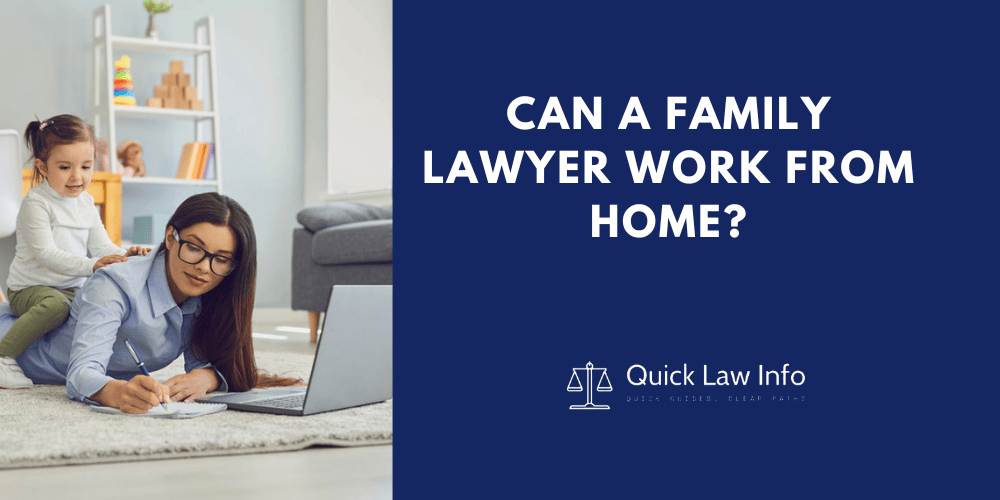In today’s changing work world, some people wonder if family lawyers can work from their own houses. With new technology and different ways of working, the legal job is changing too. In this article, we’ll talk about can a family lawyer work from home and what’s important to think about.
The Evolution of Legal Practice
Traditionally, lawyers worked in offices, meeting clients face-to-face and going to court. But things are different now.
Technology Helps
- Technology is making it possible for lawyers to work from home. They can do legal research, prepare documents, and talk to clients online. Tools like cloud storage and secure messaging are making this shift possible.
More Flexibility
- Work-life balance is important, even for lawyers. Some law firms are letting lawyers work from home to give them more flexibility. This helps lawyers have better lives and be more productive.
Advantages of Family Lawyers Working From Home

Reduced Overhead Costs
- Operating a traditional law office involves substantial overhead costs, including rent, utilities, and office supplies. By working from home, family lawyers can significantly reduce these expenses, allowing them to allocate resources more efficiently.
Improved Work-Life Balance
- Working from home offers family lawyers the opportunity to better balance their professional and personal lives. They can create schedules that accommodate family commitments, leading to healthier work-life equilibrium.
Access to a Wider Client Base
- Geographical constraints often limit the reach of a law firm. However, when lawyers work remotely, they can extend their services to clients beyond their immediate vicinity. This broadens their client base and potential for growth.
Also read: Can A Lawyer Represent A Family Member
Can A Family Lawyer Work From Home?
Yes, a family lawyer can work from home, depending on the specific nature of their practice and the regulations in their jurisdiction. Many aspects of family law can be conducted remotely, such as client consultations, legal research, document preparation, and even some court proceedings.
Here are some key considerations for family lawyers working from home:
- Type of Work
Family lawyers often engage in various tasks, such as legal research, drafting documents, and communicating with clients. Many of these tasks can be done remotely with the right technology and tools.
- Client Consultations
Family lawyers can conduct initial consultations and follow-up meetings with clients via video conferencing or phone calls, making it possible to work remotely.
- Legal Research
Much of a family lawyer’s work involves legal research, which can be done from home using online legal databases and resources.
- Document Preparation
Drafting legal documents, such as divorce petitions, custody agreements, and property settlement agreements, can be done from home using word processing software.
- Communication
Family lawyers can communicate with clients, opposing counsel, and court personnel through email and other online communication tools.
- Court Appearances
Lawyers may represent their clients from home through virtual or teleconferencing for some court appearances, especially those related to procedural matters.
- File Management
Electronic case management systems and cloud-based software can help family lawyers manage their cases and documents securely from a remote location.
However, it’s essential to be aware of local regulations and court rules that may require certain court appearances or proceedings to take place in person. Family lawyers must also maintain client confidentiality and data security while working remotely, so they should use secure communication tools and follow best practices for protecting sensitive information.
Ultimately, whether a family lawyer can work from home will depend on their specific caseload, the preferences of their clients, and any applicable legal and ethical considerations in their jurisdiction.
Many family lawyers have embraced remote work, especially during times when external circumstances like the COVID-19 pandemic have limited in-person interactions.
